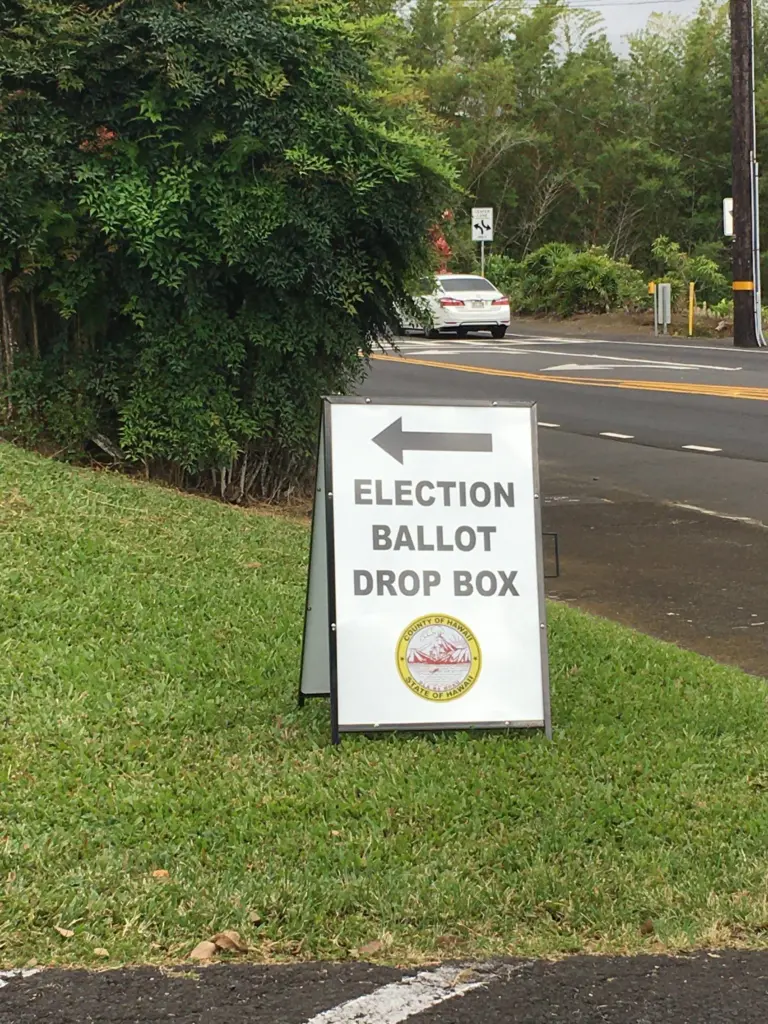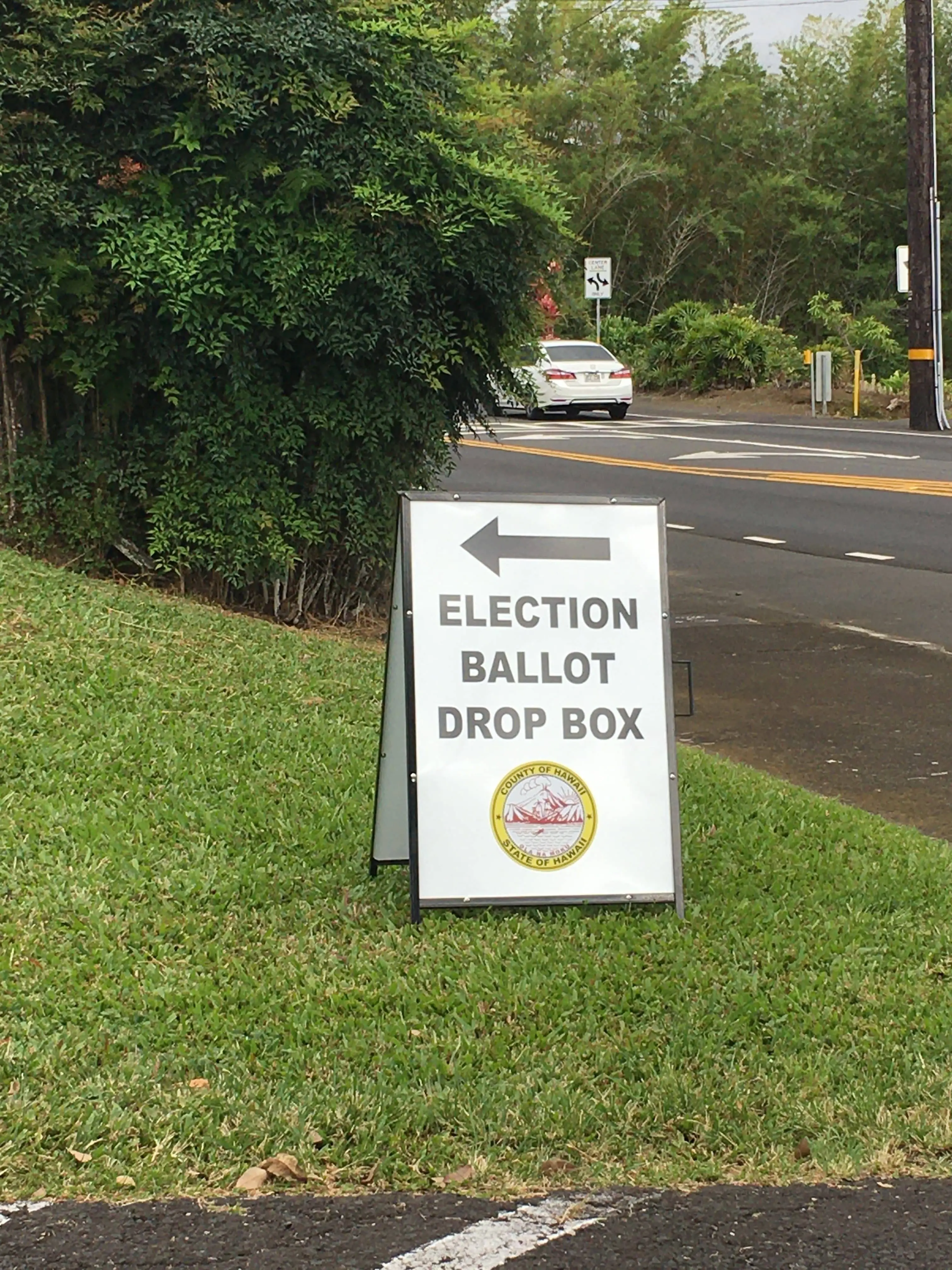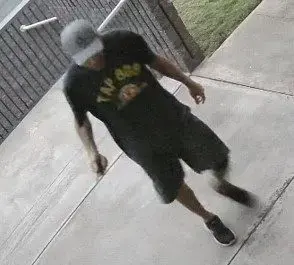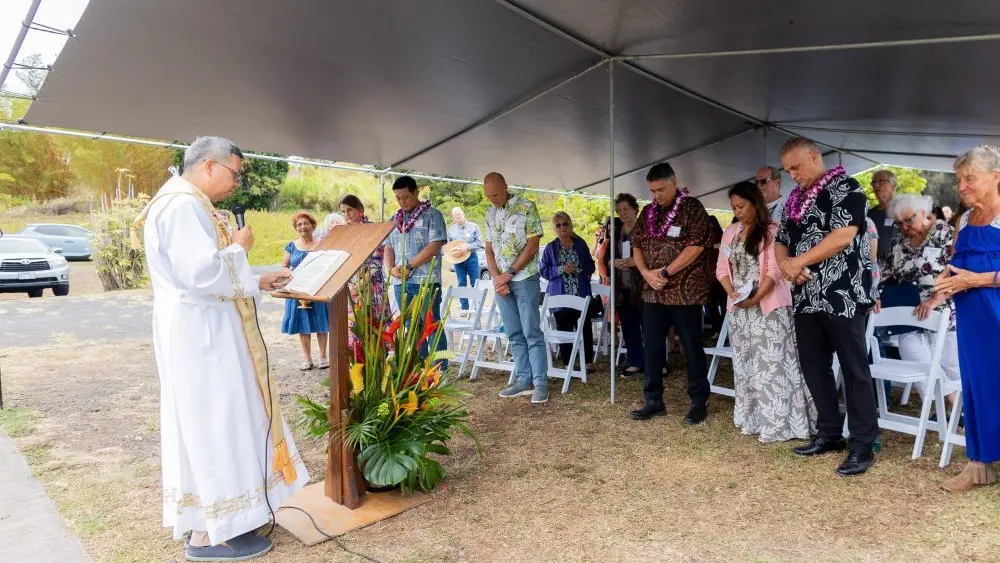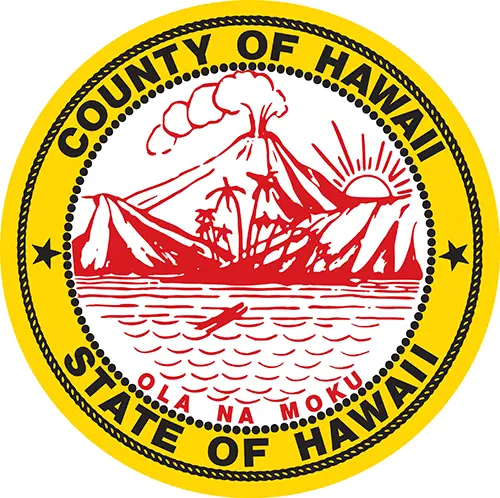(AP) – Hawaiʻi should return to in-person balloting and fire its chief elections officer, a three-member subcommittee of the state Elections Commission is recommending.
But it’s far from certain whether those actions will ever be approved by the full commission, which conducted an acrimonious meeting Wednesday.
The recommendations come after another three-member subcommittee found discrepancies in the 2024 Kauaʻi County general election results, in which the state counted more ballots than the county said it delivered.
On Wednesday, the full commission voted 5-2 to conduct an independent audit of the Kauaʻi County results.
The commission has scheduled a Sept. 24 meeting to address the findings of the second investigation, this one focused on possible election malfeasance and recommending the firing of Hawaiʻi Chief Elections Officer Scott Nago and a return to in-person voting on paper ballots.
Among that report’s major findings:
1. Hawai‘i’s election results based on electronic records are unverifiable;
2. the four county clerk offices cannot provide “chain-of-custody” ballot records as required by administrative rules;
3. there were more ballots counted in the Statewide Voter Registration System than the counties reported collecting;
4. the state Office of Elections “misleads the public” about ballot security and the integrity of elections;
5. Nago did not certify the 2024 general election results in accordance with state law; and
6. the Elections Commission and the Attorney General’s Office “suppressed complaints and evidence of malfeasance.”
The malfeasance report also calls for an “external, independent manual audit” of all mail ballot envelopes and ballots, as well USPS receipts “to reconcile ballot discrepancies” in the general election.
After the meeting, which lasted several hours on Zoom and was marked by emotional testimony and heated exchanges between commissioners, Nago told Civil Beat his office would wait for instruction from the commission on how to go about securing the independent audit for Kauaʻi. He declined to comment on the recommendations in the malfeasance report.
An inquiry about the report to the Attorney General’s Office received this response from public information officer Toni Schwartz: “We have not read the report and will reserve comment until we’ve had a chance to review.”
The Elections Commission has hiring and firing authority for the chief elections officer, but mail-in balloting was established by the Hawaiʻi Legislature beginning with the 2020 election.
The call for the Kauaʻi audit and the firing of Nago and a return to in-person voting came one day after Civil Beat reported that two of the nine election commissioners abruptly resigned. The vacancies underscored the sharp divisions among the remaining seven members.
For example, the commission voted 4-3 in favor of a motion requested by Commissioner Ralph Cushnie, who has led the charge on complaints about the way Hawaiʻi conducts elections. Cushnie wanted to subpoena entry and exit logs for the secure storage area holding the ballots for Kauaʻi from April 2024 to the present.
But the motion still failed because Elections Commission Chair Mike Curtis said that five votes were necessary to constitute a majority, not four. He was backed up Deputy Attorney General Jordan Ching, who cited a state law that says “the commission shall act by majority vote of its membership.”
Resignations notwithstanding, Ching said that the commission is officially a nine-member body. The ruling was strongly disputed by Cushnie, which led to Curtis saying Cushnie was out of order and threatening to eject him from the meeting.
Despite their differences, Curtis voted for the Kauaʻi audit along with Cushnie and commissioners Dylan Andrion, Lindsay Kamm and Kahiolani Papalimu. In the vote on the motion to subpoena, Curtis was joined in opposition by commissioners Jeffrey Osterkamp and Clare McAdam, who were the two commissioners who also opposed the Kauaʻi audit motion.
McAdam warned that the audit would be costly to taxpayers (she described the matter as “a personal crusade” on behalf of Cushnie), while Osterkamp said the issue of the Kauaʻi election was settled when the Hawaiʻi Supreme Court dismissed in December a lawsuit filed by Cushnie and others challenging the election results.
At the beginning of Wednesday’s meeting Curtis acknowledged the resignations of Young and Kuwada. Curtis said he informed House Speaker Nadine Nakamura, who has the authority name a replacement for Kuwada’s Maui seat, and Senate President Ron Kouchi, who has the same authority for Young’s seat representing Oʻahu.
Curtis did not elaborate, but the vacancies have to be filled within 15 days, according to state law. If not, the appointments must be made “promptly” by Hawaiʻi Supreme Court Chief Justice Mark Recktenwald. Conceivably, two new commissioners could be named prior to the Sept. 24 meeting.
The commission is composed of two positions each from the four counties. The Senate president and House speaker, both Democrats, select four of the commissioners while the Senate and House minority Republicans choose the other four. The chair is selected by a two-thirds vote of the commission.
Tensions remain high on the Elections Commission. No extensive remarks on the malfeasance report were allowed by Curtis, something that upset Cushnie and Andrion, members of the permitted interaction group that authored the malfeasance report along with Kamm, who said remarks had been allowed when the Kauaʻi report was released last month.
But Andrion and Kamm were allowed to read aloud the full 14-page report.
In addition to the malfeasance report and the Kauaʻi report, a third permitted interaction group is looking into the allegation that the state reportedmore votes than were actually cast in Hawaiʻi County. It’s unclear when that report will be completed.
Also at Wednesday’s meeting, Nolan Chang, the Hawaiʻi Republican Party’s national committeeman, told the commission he had asked the U.S. Department of Justice to investigate possible ballot fraud in Hawaiʻi.
Kamm, meanwhile, took issue with a Friday rebuttal from the state and Kauaʻi elections offices that downplayed ballot discrepancies.
“Sloppy record-keeping does not inspire confidence,” Kamm said.
Story originally published by the Honolulu Civil Beat and distributed through a partnership with The Associated Press.

